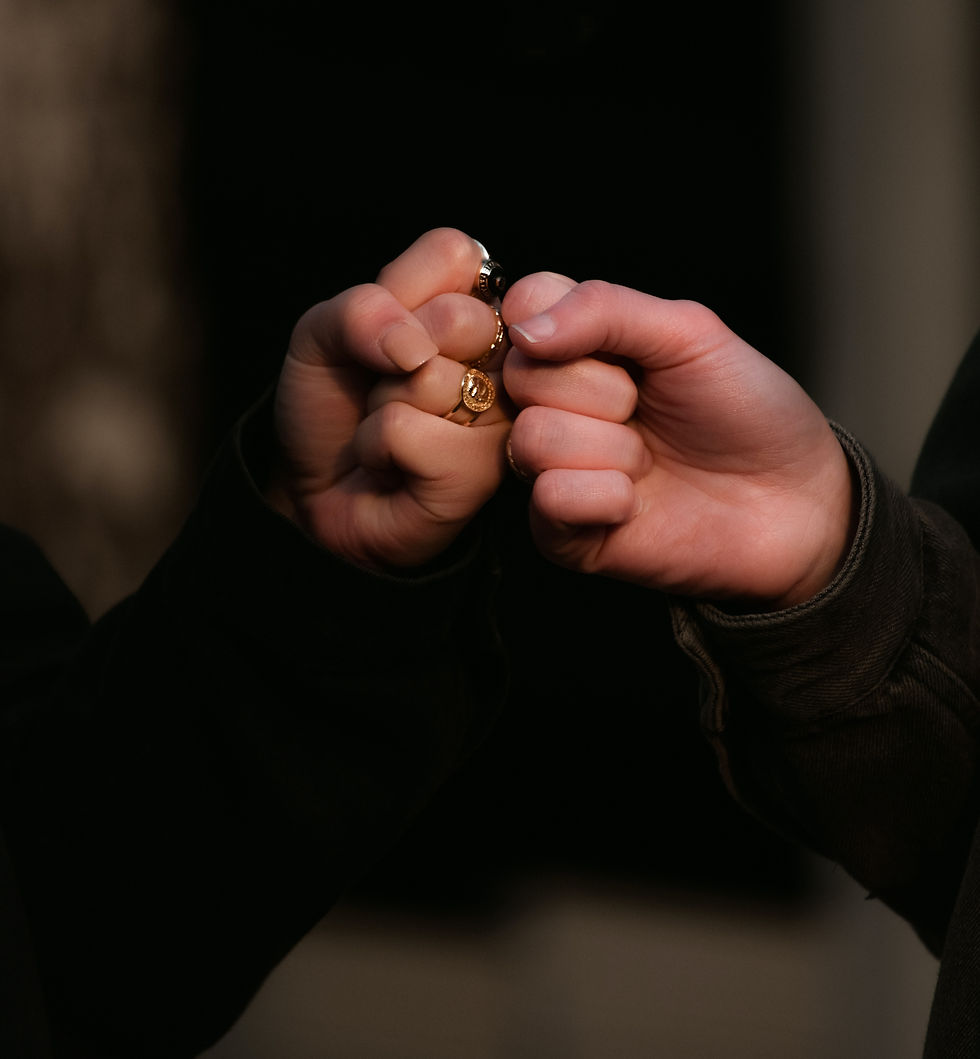Why Community is Important and 3 Tips to Grow Your Community
- Danelle Venter

- Feb 21, 2025
- 3 min read
Updated: Feb 27, 2025

In this blog post, we will explore the importance of community and share three practical ways you can grow and engage with your community. The Bible shows that community is very much a part of God’s heart. In Genesis 1:26, God says, “Let Us make man in Our image,” a decision made within the Trinity. We were made in community for community, as we share the image of God with Him and with others. We belong, in some way, both to God and to one another. Paul described the church as the body of believers, each fulfilling a distinct role, yet all equally important to one another. As human beings, we thrive in community.
Virginie Cobigo and her colleagues, in their study Understanding Community, concluded that a community is a group of people who interact with and support each other, bound by shared experiences, characteristics, a sense of belonging, and often proximity. Community gives us support, social interaction, and a sense of belonging. The people in your community offer a wealth of resources to you, and you offer them to others, enabling everyone to achieve far more than they would have in isolation. Think about your goals and dreams and the people who have helped you make progress. Maybe you have a friend who motivated you in a moment of self-doubt, perhaps you learned a skill from someone else’s experience, or maybe you offered a helping hand to a friend in need. Here are three ways you can grow your community.
We were made in community for community, as we share the image of God with Him and with others.
1. Don’t Wait for Others to Reach Out
Become intentional with the relationships you have. Don’t let the fear of perceived judgments keep you from taking the first step. Jump in with both feet, and don’t allow the need to be invited to prevent you from enjoying life with those you love. The reality is that we often get sidetracked by the responsibilities of our lives, and before we know it, a month has gone by without meaningful interaction with those you care about. Think of a fun activity you enjoy with your friends, family, or significant other, and be intentional about making it happen.
Don’t let the fear of perceived judgments keep you from taking the first step.
2. Grow Your Community
My husband and I decided we wanted to grow our circle of friends after we realized how isolated we had become. We began by looking at the people around us who we would like to know better and reached out to them. Think of someone in your life whom you would like to know better and invite them to spend time together. Start small—invite them to coffee. Who would you like to get to know better? How can you approach them?
3. Rekindle Lost Relationships
When we aren’t intentional with our relationships, it’s easy to become so entrenched in our daily routines that friendships fall by the wayside. Think about some people with whom your relationship has waned and reach out to them. Bring them back into the fold. Another thing that can disrupt relationships is conflict. In the heat of the moment, we can misinterpret someone’s intentions based on our perceptions of their actions. How can you resolve the conflict and rebuild the relationship?
I want to acknowledge that when we open ourselves to relationships with others, we also open ourselves up to hurt. I have experienced that hurt too. It’s easy then to project that hurt onto everyone around us in an effort to protect our hearts. I invite you to bring that hurt to God and allow Him to take care of the injustice. Let Him help you trust again.
Coach U
What can you do to become more intentional with the people in your community?
Who can you reach out to in order to expand your circle?
What friendship or connection was lost that you would like to rebuild? What would that first step look like?
What do you need to forgive in order to engage in community again?
Sources:
Cobigo, V., Martin, L., & Mcheimech, R. (2016). Understanding community. Canadian Journal of Disability Studies, 5(4), 181. https://doi.org/10.15353/cjds.v5i4.318
Photo by Taylor Smith @ Unsplash
Disclaimer policy: All True-Potential publications are written to assist with growth and discovery, the content of this publication should be used according to our disclaimer policy. Please refer to our disclaimer policy for more information.
© 2023 Ivan Venter, All Rights Reserved.




Comments